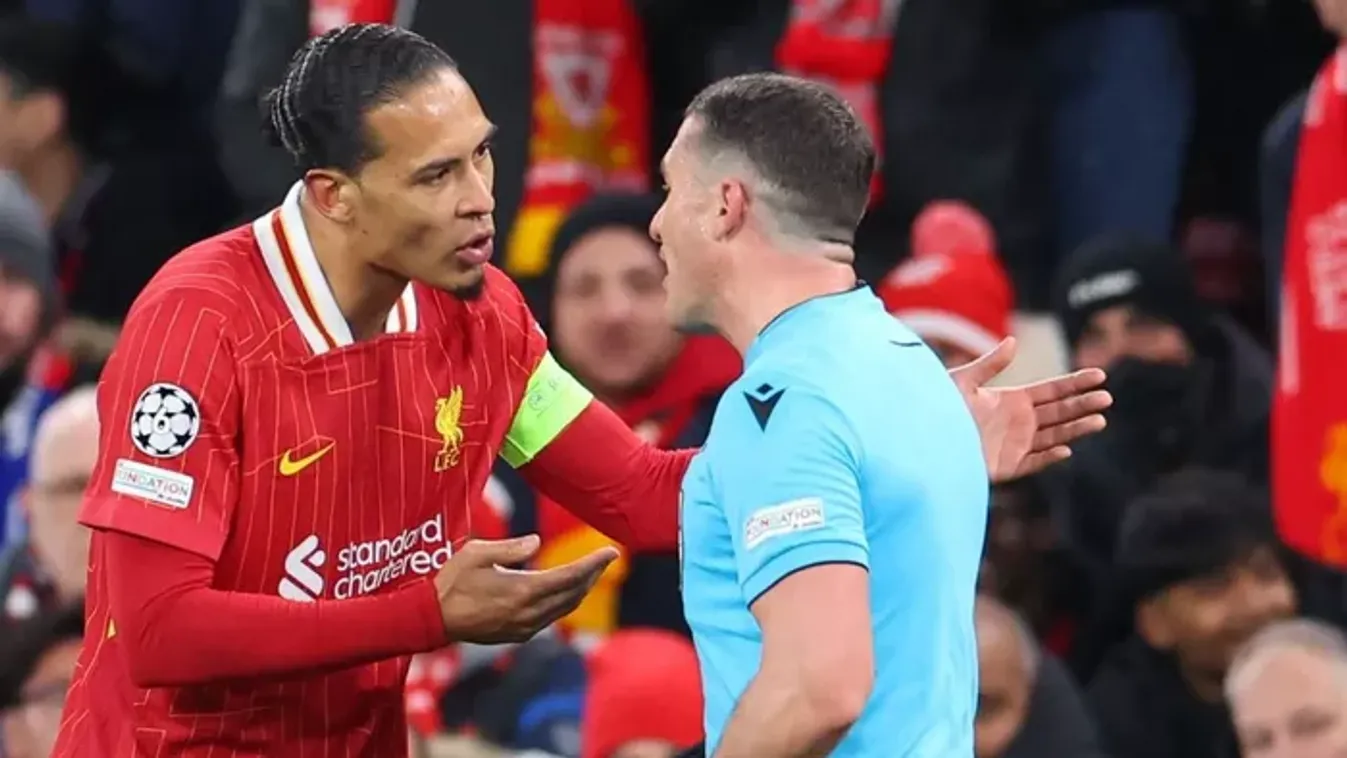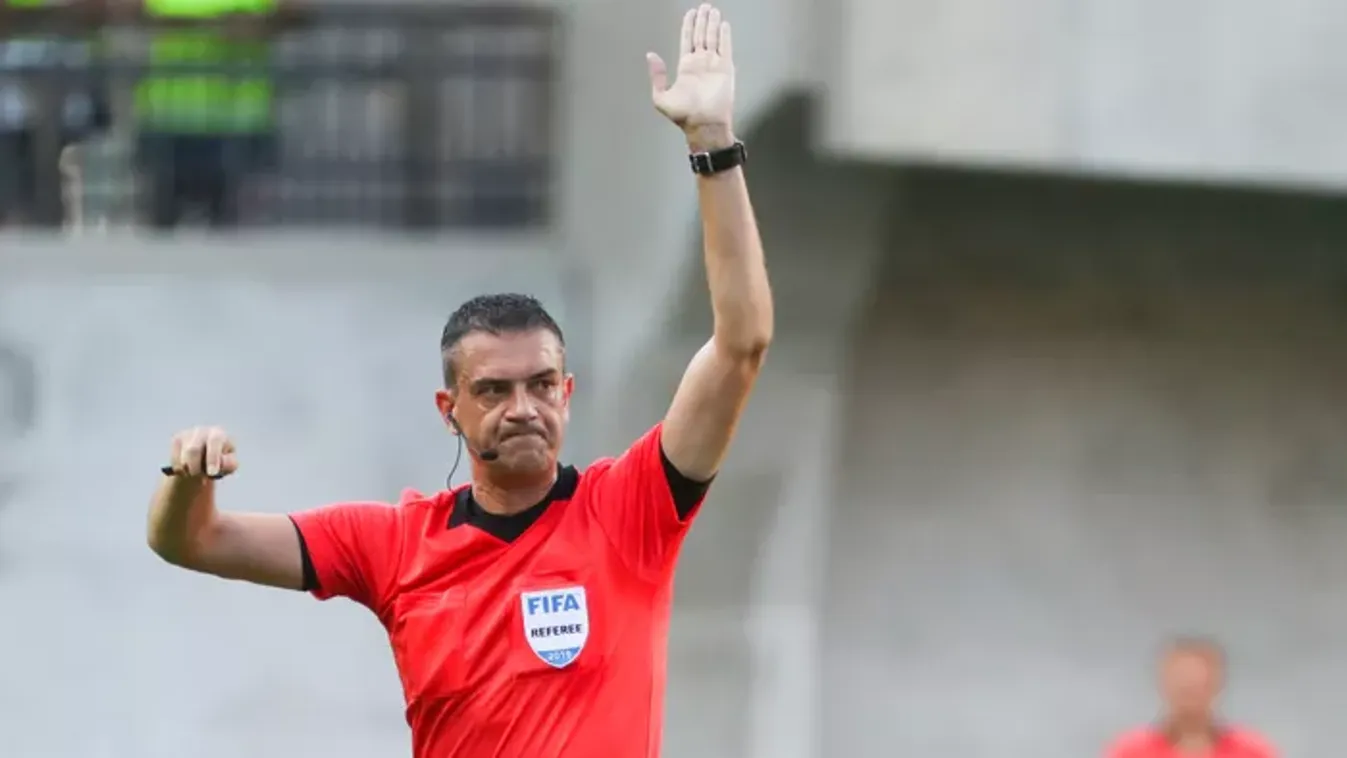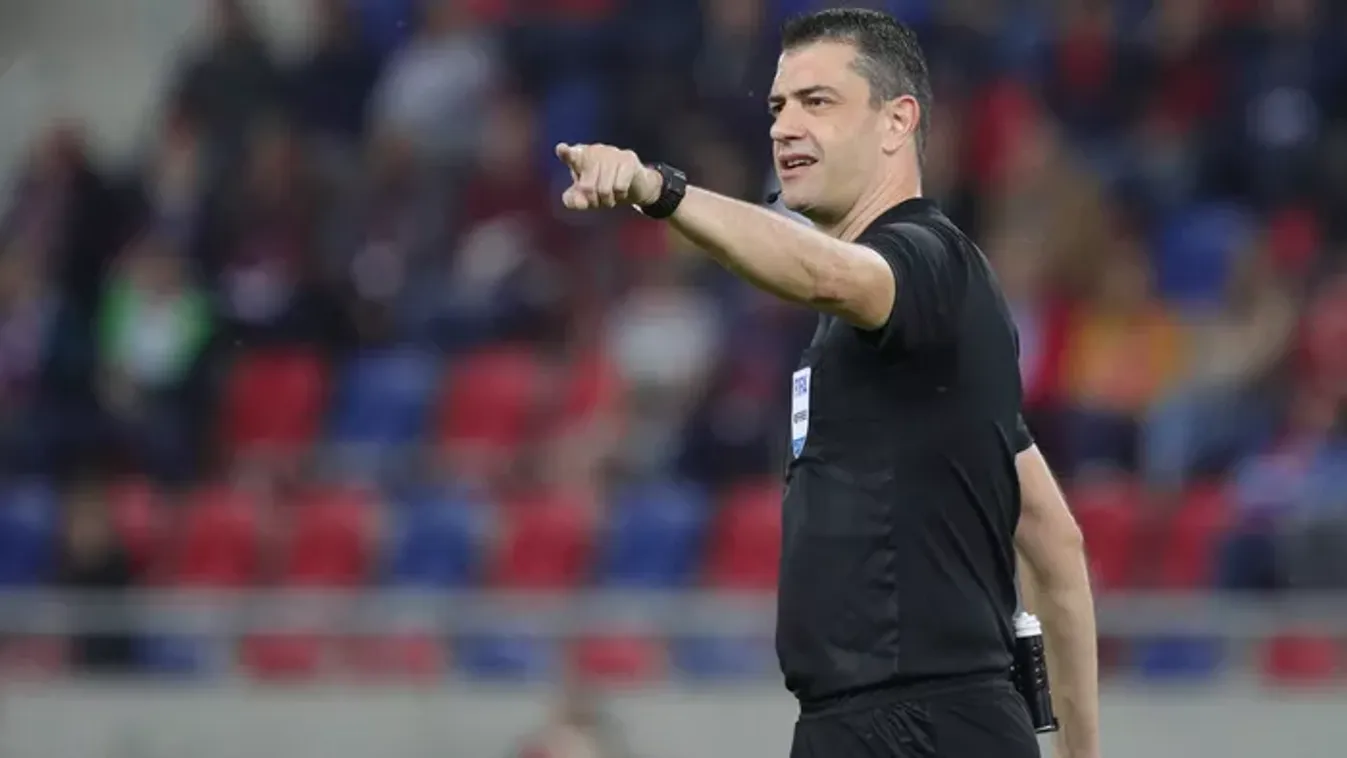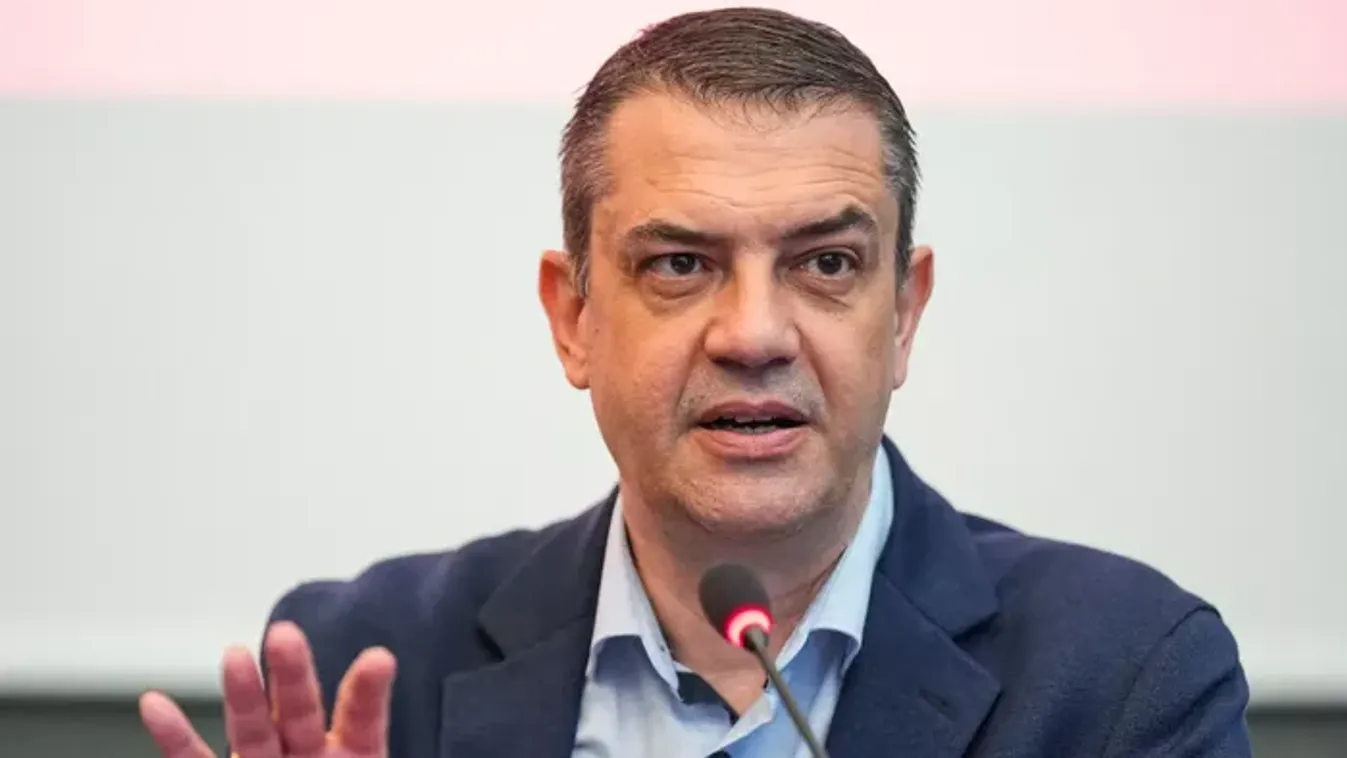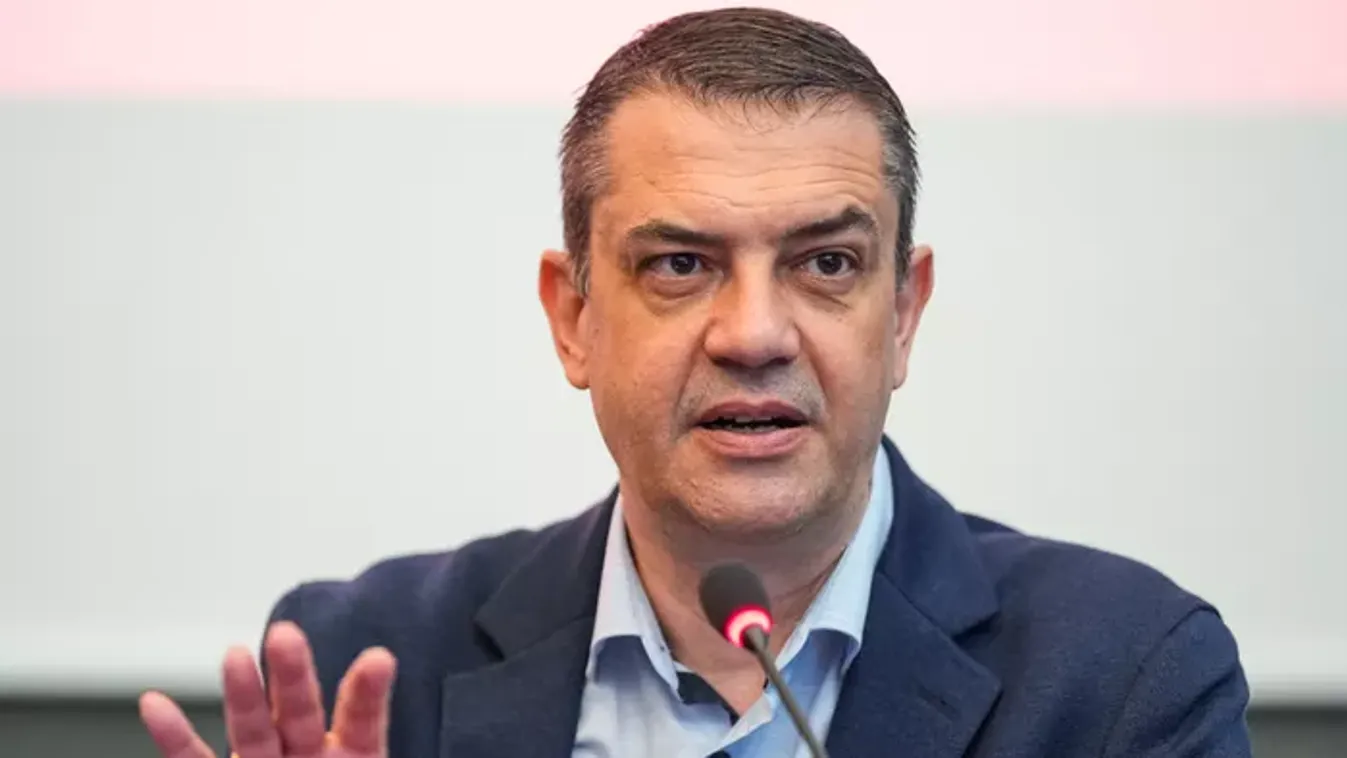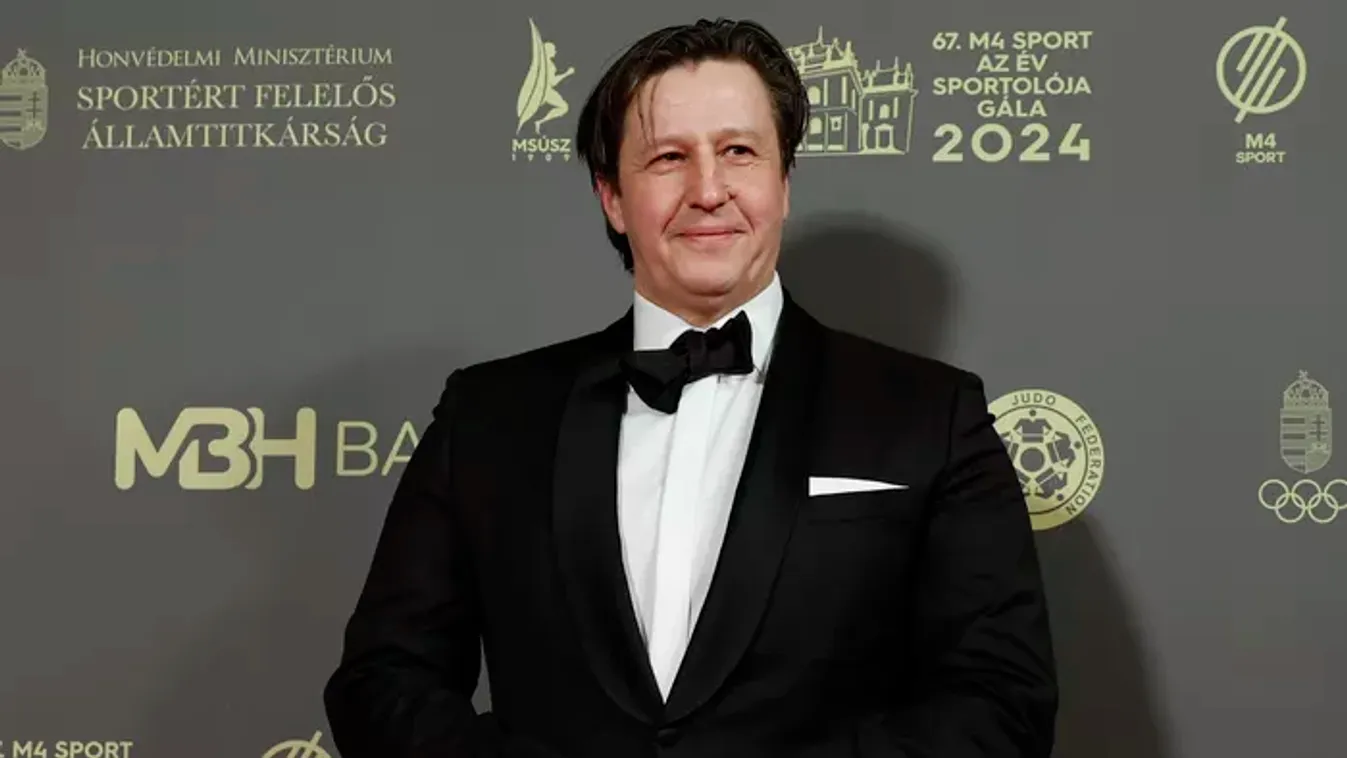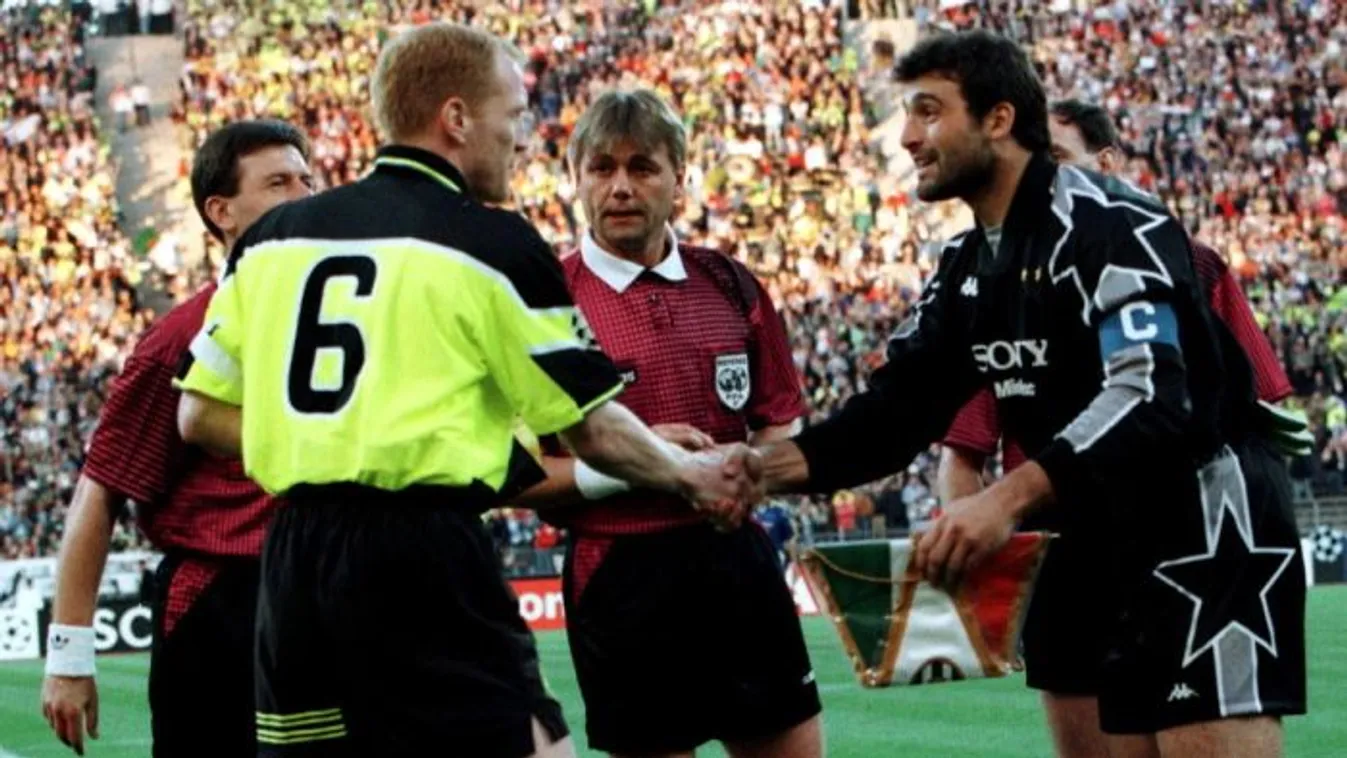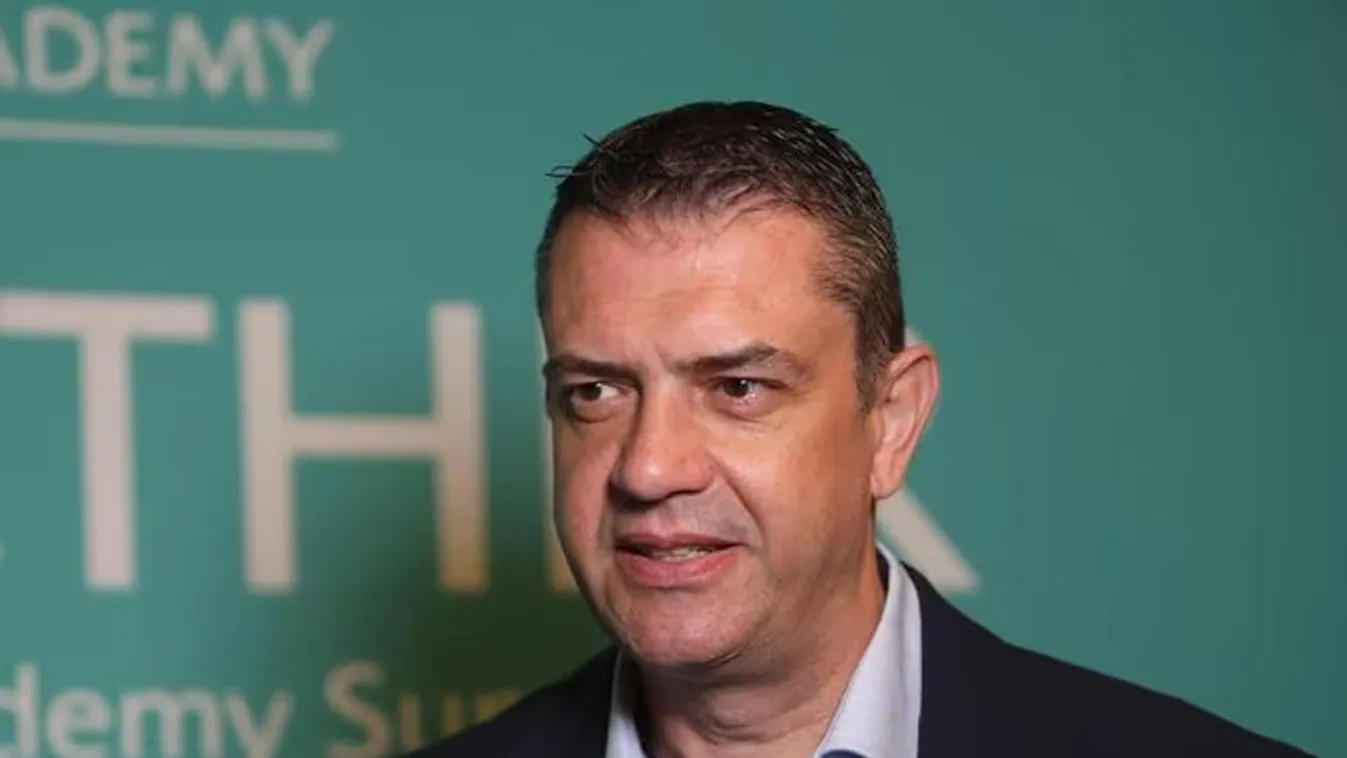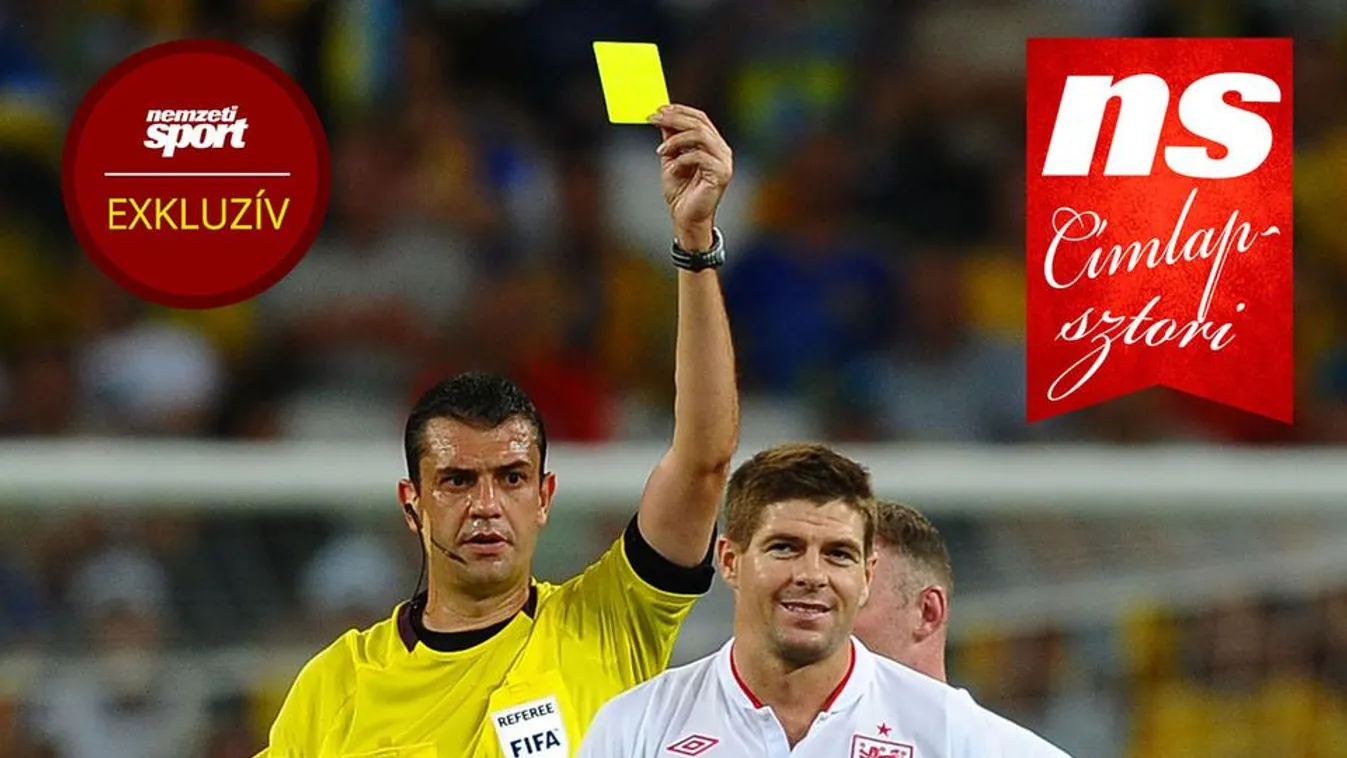
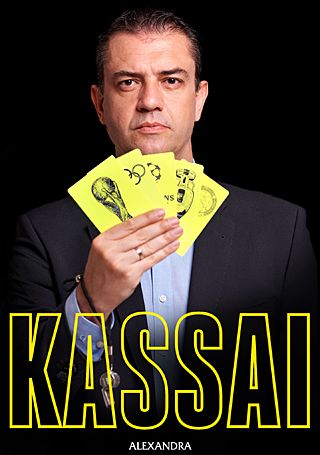
– In your autobiography, published in November, you could tell everything that had been on your mind throughout your career. Are you relieved?
– I would use another word, because the book was not born to bring the emotions that have accumulated in me to the outside world – Viktor Kassai, 46, told our portal. – Rather, the aim was to give those a little insight into the lives of referees who are not familiar with this world.
– Are anecdotes or professional explanations stand in the center?
– We did not want to write a professional book in any way, the aim was not to have a basic referee qualification after reading it. I didn't see much point in talking about the main stages of my life like a guidebook. Therefore, we tried to combine the profession and memories so that everyone who doesn't know the insights of football that well and even referees could find interesting things, ammunition, and lessons to learn.
– As a professional referee, you could only make statements in the rarest of cases, but I wonder how many times during your active years did you feel you wanted to publicly express your opinion?
– Not only in sport, but it happens in life also that one wants to speak honestly, but there are social expectations and boundaries. This is an interesting situation because footballers and coaches could talk honestly at any time in theory, they can make their statements after every game, yet in this environment, the majority of them keep their opinion themselves. Obviously, referees could talk a lot about it, but all the players in football are aware that it is unfortunate to say everything honestly about the group to which we belong.
– Are you the emotional type?
– Absolutely not. Luckily, I handled both positive and negative experiences well, perhaps because I had both in my life. Football for referees is just like football for players that they can't make a living from the past. There's always another new game, another new challenge to complete, and no one cares about past successes if a mistake is made. When my team and I were near the top, we didn't think we couldn't make mistakes. I always knew there were and there will be setbacks in my career. The opposite of it was true, too. I didn't feel like the end of the world had come when everyone was hitting us. There is no coach who is not sacked, there is no footballer who always wins a championship, and there is no referee who sooner or later does not have scandalous or troubled matches.
– What do you consider the pinnacle of your career?
– The World Cup in South Africa was a defining event, where I burst into the elite of international game management. The 2011 Champions League final was the highlight of that period. At a very young age, at thirty-five, I was entrusted with the prestigious task, perhaps the finale is the snapshot of what was taken at the top. At the same time, I think it is more important that between 2007 and 2019, I refereed forty-three Champions League games, and someone cannot be there for thirteen years for no reason. Of course, not all of the matches broadcast with twenty-five cameras have gone as we would have liked, perhaps fewer negative memories would be attached to our names if the VAR was introduced earlier, but it is unnecessary to dwell on that.
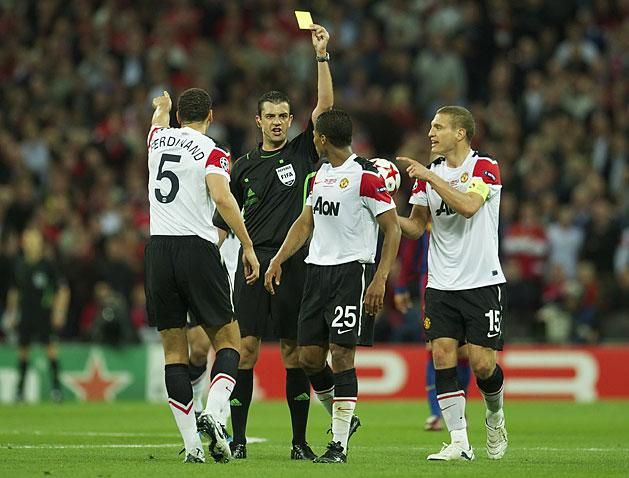
– What was the most painful point?
– I wanted to participate in more World Cups. I could have had a more successful career if we had been counted on in Brazil and Russia. But most of all, I regretted it because my colleagues György Ring and Vencel Tóth were not there with me in South Africa... even though they deserved to attend the World Cup based on their professional knowledge.
– Was it because of the 2012 European Championship England-Ukraine group match, in which no goal was awarded after John Terry cleared the ball from beyond the goal line?
– Of course, that mistake also affected our careers and we had to bear the consequences. That noisy case affected all of our careers — but it didn't break it in half. We stood up from it, endured the consequences, and then refereed a Champions League semi-final and were expected to be referees in Euro 2016. In the end, I could finish my career by refereeing my last international game in the Champions League.
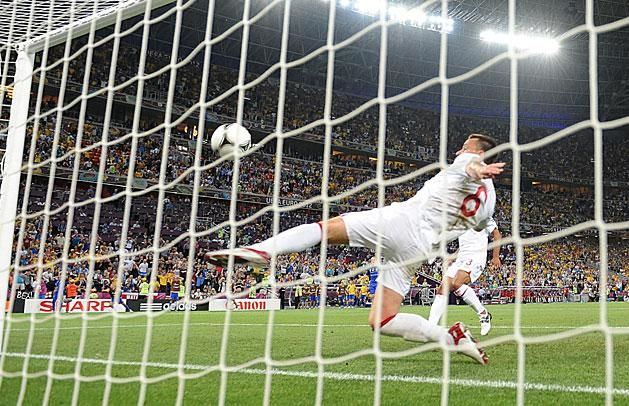
– Almost immediately after the end of your career, you headed to Moscow, and the Russian Football Union appointed you the head of referees. However, you resigned from the position in September this year. Why?
– I could talk about this a lot. Every country has its own characteristics, football and game management are organized differently everywhere. My colleague György Ring and I started this adventure because the federation wanted to move the game management towards Western European standards, and they asked for our help in this. We started working in this spirit, but habits of decades or sometimes centuries are hard to change. But when you come up against difficulties, you have to decide how much conflict you can still endure. For almost two years, we tried to help to the best of our ability, and we managed to make a difference in several areas, but the point when someone else has to try to carry on this process has come.
– Can you give specify some of the difficulties you've been through?
– There are countless organizations assigned to each other and above each other, which has resulted in referees often not knowing whose guidance they should follow. A lot of people wanted to have a say in our work and influence it, but at the same time, I got a lot from this period both humanly and professionally. I had never lived abroad for a long time before, and in this job, it was not us, but the Russian referees that mattered, and we had to adapt to them.
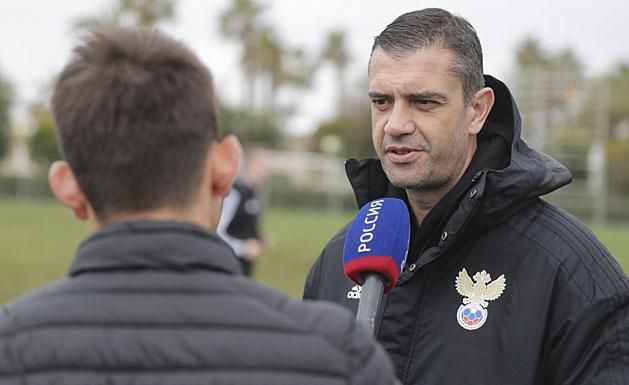
– Would you like to work in a similar role in Hungary?
– A few weeks ago, the heads of the referee committee were elected for four years, so it is certain that I'm not going to work in the Hungarian refereeing field soon. I am currently completing a UEFA sports management course. Training started before the first outbreak of COVID, but it slowed down slightly due to the virus. It's not disadvantageous what I'm studying there, and I'm also more likely to get jobs abroad.
– Does home now mean Tatabánya or Budapest?
– Tatabánya has always been important in my life, it is no coincidence that before I moved to Russia, I worked a lot with referees from Komárom-Esztergom County. Currently, my friend Gábor Erős is the head of referees there. One tries to give back something from which he got the most, I do not forget my roots, but I live in Budapest.
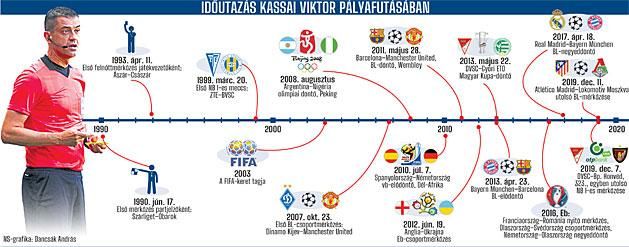
– Do you attend the NB I matches?
– I've been to lower-division matches, but I'm hardly seen at topflight games.
– Why?
– I don't want anyone to come to false conclusions about seeing me in any stadium.
– What do you think of the VAR that divides supporters and the public?
– It has a positive impact on the management of the game, the quality of the decisions and the referees. As I understand it, there are two big groups: one is for the VAR because of fewer refereeing faults, while the other says its use is changing football's tradition of many centuries, so there's no need for it. But the genie has already been let out of the bottle, which means the VAR is here and will stay. You could say it's killing football, but it's like wailing about the fact that there are no sand-lots anymore. It was a legendary time in football, but today's kids no longer want to play football on clay or bituminous pitches. We have to move with the times, the game management has to move forward as well.
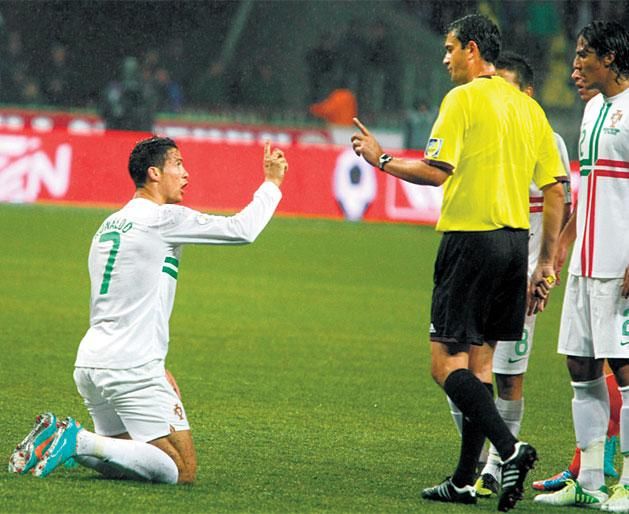

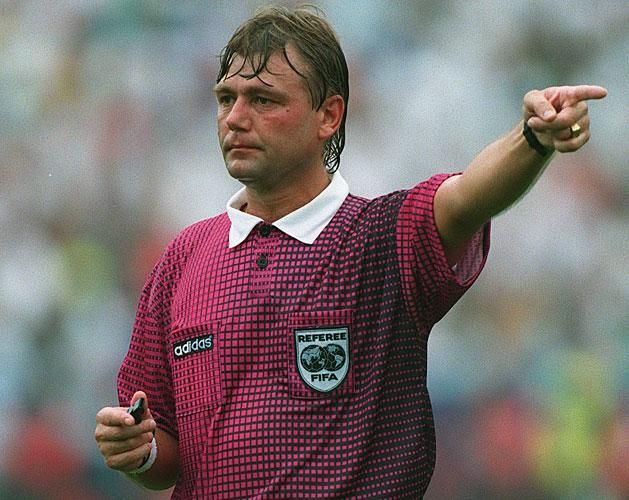
What was unthinkable for many decades became a sad reality in May this year when the world-famous Hungarian referee Sándor Puhl died at the age of 65. The Hungarian expert, who refereed the 1997 Champions League final influenced Viktor Kassai's career, who has been the Vice-president of MLSZ referees committee since 2010. "Sándor Puhl was one of the greatest referees in the history of football, and his successes were a huge motivation for future generations, as fewer people refereed World Cup finals than there were in space. He was a part of my career throughout. When I joined the NB I squad in 1999, he was still an active referee. In fact, we ran out on the pitch together for three games, so I could watch his work up close. Later, he was the professional head of MLSZ referees committee for almost twenty years, and I think no one could imagine that the day would come when Sándor no longer manages the Hungarian referees. He has been a defining and indispensable figure in the last thirty years of Hungarian football game management." |
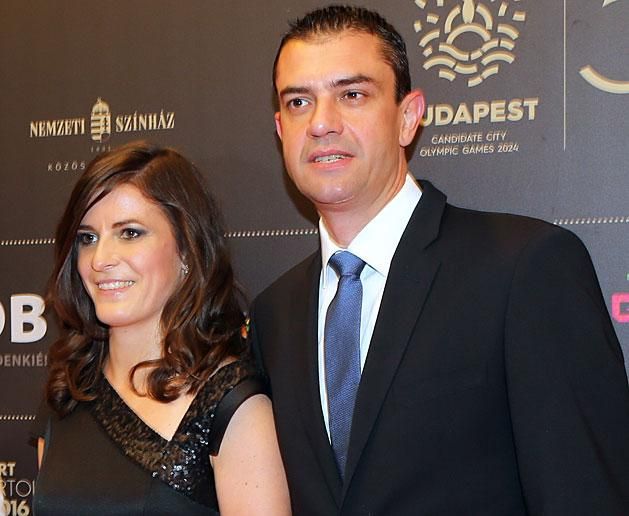
| In the forthcoming autobiography, Viktor Kassai gives an insight behind the scenes, but the referee of the 2008 Olympic final continues to try to protect his privacy from the public. Nevertheless, in the world of football, it is no secret that his wife is Katalin Kulcsár, who is also a referee, and indeed, not just any referee. After all, she was voted the best female referee in the world by the International Federation of Football History and Statistics (IFFHS) in 2016. “Obviously everyone in the refereeing world knows about our relationship and a lot of people in the football world know we're together. It's no secret how we feel about each other, but I never looked for a chance to be in the spotlight or be ostentatious. The results of the last 20 years have obviously obliged me to play a certain media role, and I have always complied with them, but I did not feel that exposing my personal life would benefit anyone." |
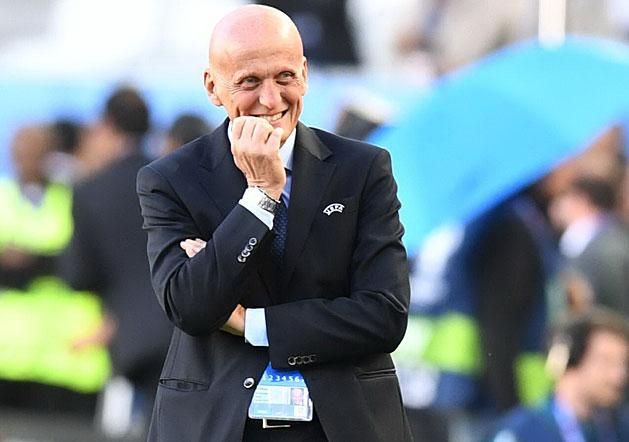
| After the end of his refereeing career, Viktor Kassai headed almost immediately to Russia, but he is not the only referee to take up a job in another country after his retirement. Poland's Michał Listkiewicz, a former referee who is fluent in Hungarian, has worked as a head referee not only in his home country but also in Armenia. The legendary Pierluigi Collina was an instructor on UEFA's refereeing committee for eight years, and in 2010, at the request of the Ukrainian Football Federation, he became the head of the Ukrainian referees. In addition, Slovakian Ľuboš Micheľ tried himself in a different environment taking a job at Shakhtar Donetsk in 2008 where he managed the club's international relations. From December 2015 to November 2018, he worked as a sports director at Greek PAOK. As far as Russia is concerned, before Viktor Kassai, Italian Roberto Rosetti also worked for the local federation as the head of referees, while Portuguese Vítor Melo Pereira replaced the Hungarian professional. |
